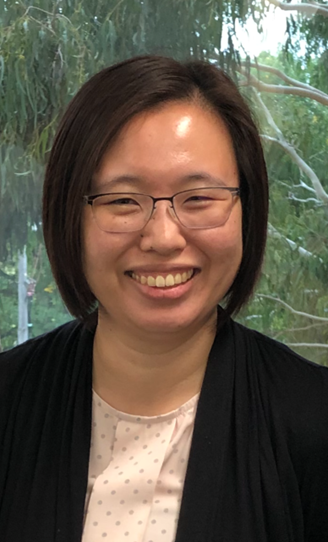Dr Yet Khor sat down with the PACT team to talk about her project Understanding overnight oximetry in fibrotic interstitial lung disease, including how it started and what the support of the PACT Grant-in-Aid will mean for this research.
Tell us a bit about yourself and why you chose Pulmonary Fibrosis (PF) as your research area:
I am a respiratory and sleep physician based at Austin Health in Melbourne. I was and am still fascinated and curious about the disease process of pulmonary fibrosis. After finishing training, I received a NHMRC scholarship to start my PhD in pulmonary fibrosis and oxygen therapy at the University of Melbourne, and then an Australian Endeavour Scholarship for a post-doc fellowship with Chris Ryerson at the University of British Columbia (Canada). My research is clinically focussed, including how the disease progress over time and how can we improve clinical care. It has been great to do research alongside my clinical work in pulmonary fibrosis.

Describe your clinical research project in a couple of sentences:
This project evaluates how supplemental oxygen affect sleep structure and quality, as well as systemic inflammation, in people with pulmonary fibrosis using detailed assessments with sleep studies, questionnaires, and blood measurements. As part of this study, we will also assess the use of overnight monitoring using a pulse oximeter, which is a small device clipped to a finger to measure blood oxygen levels, to detect sleep apnoea in this population.
Tell us how this project came about:
I was attending a talk on recent advances in sleep physiology by Simon Joosten (an NHMRC early career fellow at Monash University) at the TSANZ Victoria branch Annual Scientific Meeting in 2019, when the idea first came. We have limited understanding about sleep health in pulmonary fibrosis, as very little research has been done. I caught up with Simon after his talk, and we came up with a few studies evaluating different aspects of sleep health in pulmonary fibrosis. This project is one of those. It is also a question I have with regards to oxygen use in pulmonary fibrosis.
What do you hope this project will achieve?
I hope this project will give us data about the acute effects of supplemental oxygen during sleep in pulmonary fibrosis. Also, how can we use a pulse oximeter for overnight assessments, given sleep studies are expensive and can be hard to get one depending on where one lives. We can then use these results to design and get further funding to study the long-term effects of supplemental oxygen during sleep in pulmonary fibrosis. In the long run, I hope that this project will contribute to better sleep health and daytime function in people with pulmonary fibrosis.
What has been the biggest challenge of the project so far?
It is tricky for anyone to set up a new study since COVID-19. We are close to getting the ethics approval after addressing any concerns of potential impact and infection risks with COVID-19, should we experience any further spikes of positive cases. I’m pleased that all my collaborators have kept their enthusiasm for this project, despite facing challenges for their own research with interruption over the last 12-18 months.
The people working on this project are:
I’m leading this project with a multidisciplinary team of sleep researchers (Austin Health: Mark Howard; Monash University: Simon Joosten, Brad Edwards, Shane Landry) and a basic scientist (RMIT University: Ross Vlahos). Additionally, Chris Ryerson will provide input with our ongoing collaboration. The sleep lab scientists at Austin Health, led by Tom Churchward, will support the conduct of sleep studies, which is the biggest task.
What will the support of the PACT Grant-in-Aid mean for your clinical research?
Very grateful to receive the PACT Grant-in-Aid, which provides funding for equipment and support required for home overnight oximetry monitoring. This allows us to expand our project to evaluate the value of this simple assessment for use in people with pulmonary fibrosis.
What do you see as the biggest evidence gaps in PF care? What are the clinical research priorities?
Symptom care! We have made a step forward by having drugs that we can offer to slow disease progression for people with pulmonary fibrosis. More new drugs are being investigated to treat pulmonary fibrosis. However, until we find drugs that can reverse lung scarring, we need to be able to address those distressing symptoms experienced by people with pulmonary fibrosis. I look forward to the day when I can offer something that can improve how my patients feel and carry out day-to-day life, together with more accurate diagnosis of pulmonary fibrosis and different drug options to treat or reverse lung scarring.
